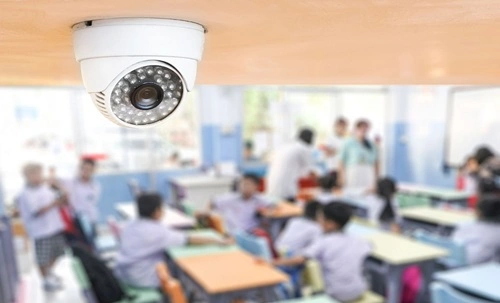Well, in general, it is actually not illegal to have cameras in classrooms. But the thing is, the rules and regulations regarding that vary in different states in the country. So, if you’re feeling kinda confused about that, you may want to check on the rules that your state has in place for cameras in classrooms. Though, let’s take a good look at it to understand this whole thing in a better way.
What Do the Laws Focus On?

Well, to be honest, there are two major legal concerns when it comes to classroom cameras: privacy and consent.
The legal nature of classrooms operates in the gray zone. Since they aren’t halls or open to the general public, they aren’t completely private, for that matter. Hence, some states consider classrooms to be semi-private spaces, where recording could happen only if given permission.
And also, keep in mind: Video and audio are treated differently under the law. Most states allow the recording of video without sound. But audio is a graver issue. Several states abide by “all-party consent” laws, wherein every person in the room must consent to audio recording. So just be aware of that before you do anything like that.
What’s Legal in Different States?
- Texas: The installation of cameras in special education classrooms is permitted, provided that the parents or staff request it and give written consent.
- Florida: Video recording is all right as long as there is permission from the involved parties for audio recording.
- California: Cameras are not allowed generally unless there is mutual consent from the teacher and school officials.
- Illinois: This state has one of the most stringent laws, requiring consent from all parties for video or audio recording.
- New York: Cameras are allowed to be installed in areas of public schools, like hallways. For classrooms, schools have to notify people clearly through signs or written notices.
Where Cameras Are Absolutely Not Allowed
Well, even in schools or educational institutions that are public, certain areas are off-limits, no matter what the state laws say. These include:
- Restrooms
- Locker rooms
- Changing rooms
- Some staff-only areas, like break rooms
Recording in these private spaces is illegal in almost every state and can lead to serious legal consequences, so just be aware of that, no matter what.
Hidden cameras are almost always illegal. People who are being recorded without their knowledge have serious legal claims, especially in strict anti-surveillance states such as Maine, Kansas, and New Hampshire.
Why Would Schools Want Cameras in the First Place?
Well, sure, there are valid reasons to avoid cameras, but there are some actual good reasons why there are cameras installed these days in classrooms like:
Safety: Cameras can be used to observe and record an incident occurring, like a fight or an emergency, as well as a disciplinary action.
Prevention: The visibility of cameras discourages inappropriate behavior and, in some ways, provides a protective blanket against false accusations by either students or staff.
Observation: Occasionally, school managers use the cameras for discreet classroom observations without interrupting lessons.
So yes, cameras can be helpful, you know, if used the right way.